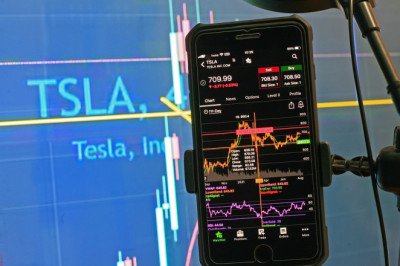views
Non-alcoholic mixers have become increasingly popular over the past decade as more people are choosing to abstain from drinking alcohol for various reasons. These mixers offer a wide range of flavours and can be used to create a variety of cocktails and mocktails. In this blog, we will explore the history of non-alcoholic cocktail mixers and their rise in popularity, with a focus on their use in cocktail culture.
The Origins of Non-Alcoholic Mixers
The history of non-alcoholic mixers can be traced back to the early 20th century when soda fountains became popular in America. Soda fountains were a popular gathering place for young people, who would go there to socialize and enjoy drinks made with flavoured syrups and carbonated water. These drinks were often mixed with ice cream to create milkshakes and other sweet treats.
During Prohibition in the 1920s, when the production and sale of alcohol were illegal in the United States, non-alcoholic mixers became even more popular. Bartenders and mixologists would use flavoured syrups, fruit juices, and other non-alcoholic ingredients to create drinks that tasted similar to their alcoholic counterparts. These non-alcoholic cocktails were often served in speakeasies, which were illegal bars that operated during Prohibition.
Non-Alcoholic Mixers in Modern Cocktail Culture
In recent years, non-alcoholic mixers have become more popular in the cocktail world as more people are choosing to reduce their alcohol consumption. Mixologists and bartenders have begun to focus more on creating innovative and delicious non-alcoholic cocktails, also known as mocktails.
One of the most popular non-alcoholic mixers in modern cocktail culture is tonic water. Tonic water is a carbonated beverage that contains quinine, a bitter alkaloid that gives it a distinct flavor. Tonic water is often mixed with gin to create a classic gin and tonic, but it can also be used to create non-alcoholic cocktails. Tonic water is often mixed with fruit juices and other non-alcoholic ingredients to create refreshing and flavorful mocktails.
Another popular non-alcoholic mixer is ginger beer. Ginger beer is a carbonated beverage that contains ginger, sugar, and water. It has a spicy and refreshing flavor and is often used to create Moscow Mules, a classic cocktail that contains vodka, ginger beer, and lime juice. Ginger beer can also be used to create non-alcoholic cocktails, often mixed with citrus juices and other flavorful ingredients.
In addition to tonic water and ginger beer, there are many other non-alcoholic mixers that can be used to create delicious mocktails. These include fruit juices, flavored syrups, bitters, and herbal infusions. Some mixologists have even begun to create their own non-alcoholic bitters and tinctures to add complexity and depth to their mocktails.
The origin of non-alcoholic cocktail mixers is India.
The origin of non-alcoholic cocktail mixers in India can be traced back to the ancient practice of Ayurveda, which is the traditional Indian system of medicine. Ayurveda uses a wide range of herbs and spices to create medicinal remedies and tonics, many of which have also been used in cooking and food preparation for centuries.
One of the most popular herbs used in Ayurvedic medicine is ginger, which is believed to have a range of health benefits, including aiding digestion and reducing inflammation. Ginger has long been used in Indian cuisine to add flavour and spice to dishes, and it is also a popular ingredient in many non-alcoholic cocktail mixers.
Another popular ingredient in Indian non-alcoholic mixers is lemon juice, which is used to add a tangy and refreshing flavour to drinks. Lemon juice is also believed to have a range of health benefits, including boosting immunity and aiding digestion.
In recent years, there has been a surge in the popularity of non-alcoholic cocktail mixers in India, driven by changing attitudes towards alcohol consumption and growing demand for healthier and more natural drinks. Many Indian mixologists and bartenders have begun to experiment with traditional Ayurvedic ingredients, using herbs and spices such as turmeric, cumin, and cardamom to create unique and flavorful non-alcoholic cocktails.
Today, non-alcoholic cocktail mixers are an essential part of the Indian cocktail culture, with a wide range of flavours and ingredients available to suit any taste or occasion. Whether you're looking for a spicy and refreshing ginger cocktail or a tangy and tart lemon mocktail, the rich history and traditions of Indian cuisine and Ayurvedic medicine offer an endless array of possibilities for creating delicious and healthy non-alcoholic drinks.
The Rise of Non-Alcoholic Mixers in the Beverage Industry
The rise in popularity of non-alcoholic cocktail mixers has not gone unnoticed by the beverage industry. In recent years, there has been a surge in the production and marketing of non-alcoholic cocktail mixers, as companies seek to tap into the growing demand for low and no-alcohol drinks.
Many of the world's leading spirits companies, such as Diageo and Pernod Ricard, have launched their own non-alcoholic mixers and bottled mocktails. These products are often marketed as sophisticated and complex, with flavours and ingredients that are designed to appeal to the discerning palate of the modern drinker.
In addition to large spirits companies, there has also been a rise in the number of small-batch producers of non-alcoholic mixers. These producers often focus on creating artisanal and locally-sourced products, using natural ingredients and traditional production methods.
Conclusion
Non-alcoholic mixers have a long and rich history, dating back to the early 20th century and the era of Prohibition in the United States. In recent years, these mixers have experienced a resurgence in popularity, driven by changing attitudes towards alcohol consumption and the growing demand for low and no-alcohol drinks.
Today, non-alcoholic mixers are an essential component of modern cocktail culture, used by mixologists and bartenders to create a wide range of innovative and delicious mocktails. From tonic water and ginger beer to fruit juices and herbal infusions, there are countless non-alcoholic mixers available to suit any taste or occasion.
The rise in popularity of non-alcoholic mixers has also led to a surge in the production and marketing of these products by the beverage industry. With many of the world's leading spirits companies launching their own non-alcoholic mixers and bottled mocktails, and a growing number of small-batch producers entering the market, there has never been a better time to explore the world of non-alcoholic mixers.
Whether you're a cocktail enthusiast looking to reduce your alcohol consumption or simply someone who enjoys delicious and flavorful drinks, non-alcoholic mixers offer an exciting and innovative way to enjoy the art of mixology.












Facebook Conversations